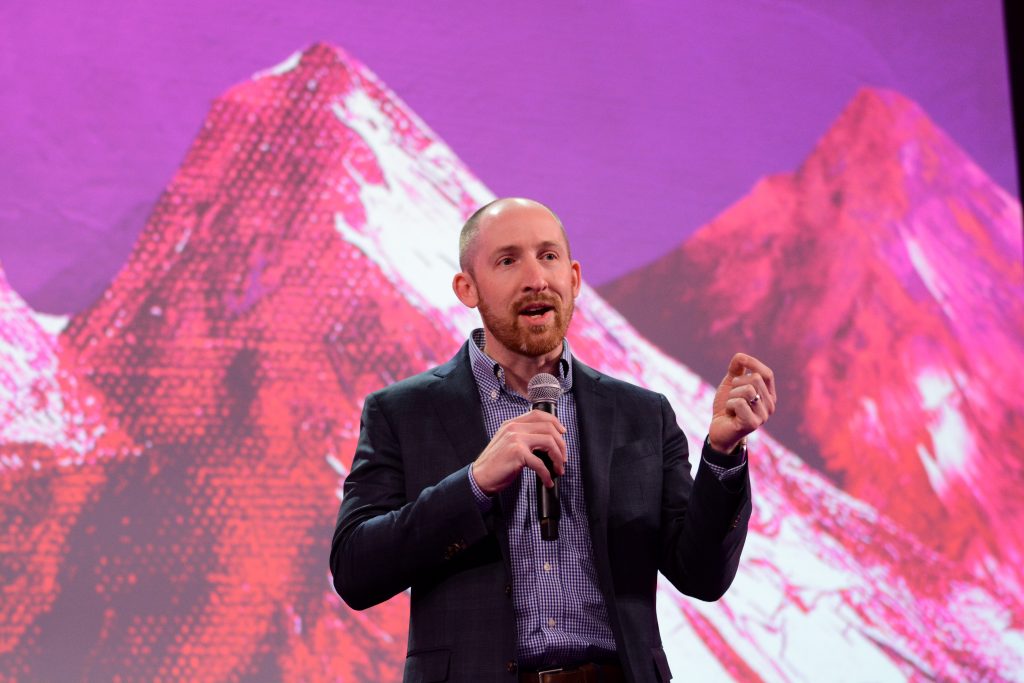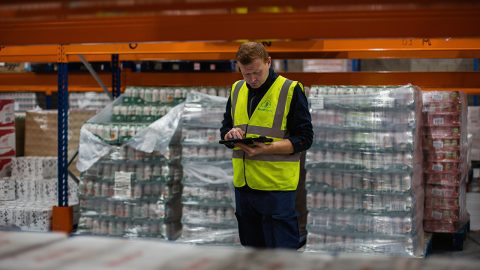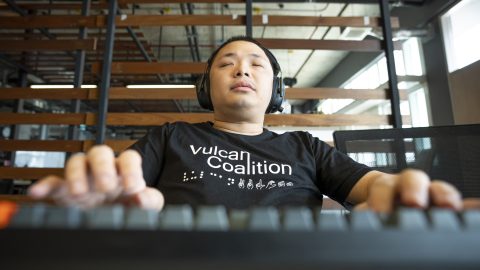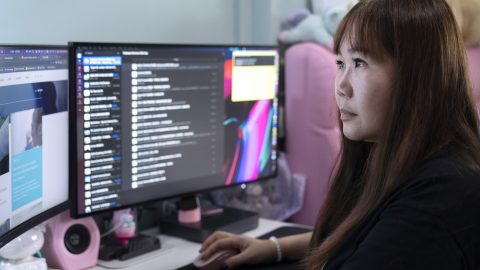Insight’s Matt Jackson on the exciting potential of an AI-filled future
Matt Jackson has always been passionate about building things: forts as a kid, video games in high school, then software in his early career. Now, as vice president of digital innovation at Insight, he helps others build up their companies. Every day, he and his team construct innovative technology solutions so Insight’s clients and their employees can be more productive, whether that’s a chatbot to update customers on their stock portfolios or an algorithm to help a hospital with staffing.
His role at Insight didn’t even exist a few years ago, but Jackson seems made for the title. Though the solutions he creates can involve everything from machine learning to the intelligent edge, it’s about more than just helping companies choose the right technology. He also helps clients see the bigger picture and strategize how they can continue to innovate and evolve.
Jackson’s ability to dream big is one reason why Insight was named the 2018 Artificial Intelligence (AI) Partner of the Year at Inspire, Microsoft’s annual partner conference. We spoke with Jackson at the event about how AI can work behind the scenes to make our lives easier, what he envisions for the future of tech and how he landed his dream job.
TRANSFORM: Did you always know technology was something you wanted to do?
Oh no, I evolved. I like to build things. Ever since I was a kid, I used to build forts and Legos and stuff. When I came out of college, I started by building software, and I loved it—it was a very creative exercise. Over the years, I realized what I was really passionate about was building companies. So I went from building things to building software to helping build a company, BlueMetal, which was acquired by Insight. I still think of it as, “I just build things.” There’s a common theme there—roll up your sleeves, get your hands dirty, and at the end of the day you have something to show for it.
TRANSFORM: VP of digital innovation is a job title no one even imagined a decade ago. What is that role and why is it so important to your company?
JACKSON: From a company perspective, it’s about understanding the technology landscape and making sure that we’re always ahead of the curve. Most of my job, though, is focused on helping our clients innovate. Our clients know their business better than anybody, but they haven’t innovated hundreds of times.
Not only do we know the technology, we know the process of how companies can transform, so we bring the experience of that journey. They know they need to go down that road, whether because of competitor pressure or wanting to bring a new product to market, and they can probably imagine the end of that journey, but they don’t know what it’s like to actually go on that digital transformation journey.
TRANSFORM: Tech companies are becoming more specialized, but Insight embraces a holistic approach. How do you balance range and depth?
JACKSON: I think there’s power in being focused, but we have the resources to be focused in many areas. Just because a modern experience might require you to have AI and Internet of Things (IoT) as well as a great user experience doesn’t mean that you’re spreading those capabilities thin. We’re able to bring all those very specific capabilities to build one of these holistic solutions. With scale, we have the ability to create many areas of focus.
TRANSFORM: Many superheroes are better than one.
JACKSON: Yeah, we’re not just a single-superhero movie! That’s a good analogy.
TRANSFORM: You’re at the forefront of delivering AI solutions. Do any stand out to you?
JACKSON: Almost all of our projects now include some form of AI, which you couldn’t say even a year ago. What I like the most is when AI pops up in spaces where it’s not an obvious solution.
[The solution we created for] Steward Health Care is a great example. You’ve got a tablet a nurse is using to do the intake—identify the patient, specify the condition they’ve come to the hospital for—but behind the scenes it’s correlating that against 18 different data sources to predict how long that patient will be in the hospital.
Right off the bat, you can start to identify people who are at high risk for extended stays. The sooner you can get someone in and out of the hospital, the less likely they are to contract some other disease, and the better their health outcome is.
First and foremost, by using this predictive modeling, we’re able to get people in and out of the hospital and treated faster, but then we can feed that information into a predictive labor management application. The smarter you are about who you staff and when, you’re providing [better] services to your patients by having the right doctors on staff.
TRANSFORM: Is that how you see AI implementation evolving over time? Will it become more subtle?
JACKSON: I think it’ll become pervasive. It’ll become part of the fabric of your daily life. Everything we touch, all of our devices, are becoming connected. And as they become connected, more and more of them are going to be driven by AI. It’s not just about gathering the data, it’s about how do we push that intelligence out to the edge so that our devices are functioning for us, trying to understand what we’re going to need and how they can better serve us. I think within a decade or two, virtually every device and piece of technology we touch will be driven by AI in some form.
TRANSFORM: What applications do you see in the future that might not be possible now?
JACKSON: Personalized medicine—take cancer as an example. It’s not like the flu, there’s different DNA for virtually every cancer in every person. So the future of cancer treatment is most likely designer drugs targeted to your form of cancer. The processing power it currently takes to understand your DNA and design a drug that can target it is enormous. It’s not a deterministic equation, you do need AI technology like neural nets to really do the evaluation, to understand how to develop medicine to treat that.
You might, in two decades, go to the doctor and take a blood test or breathe into a tube, it identifies what cancer you have, it designs a drug for it, and spits it out of the machine in an hour. It’ll be like if you had an infection and took antibiotics, in today’s terms.
Matt Jackson speaking at Insight’s Evolve sales rally in Tempe, Arizona. (Photo courtesy of Insight)









